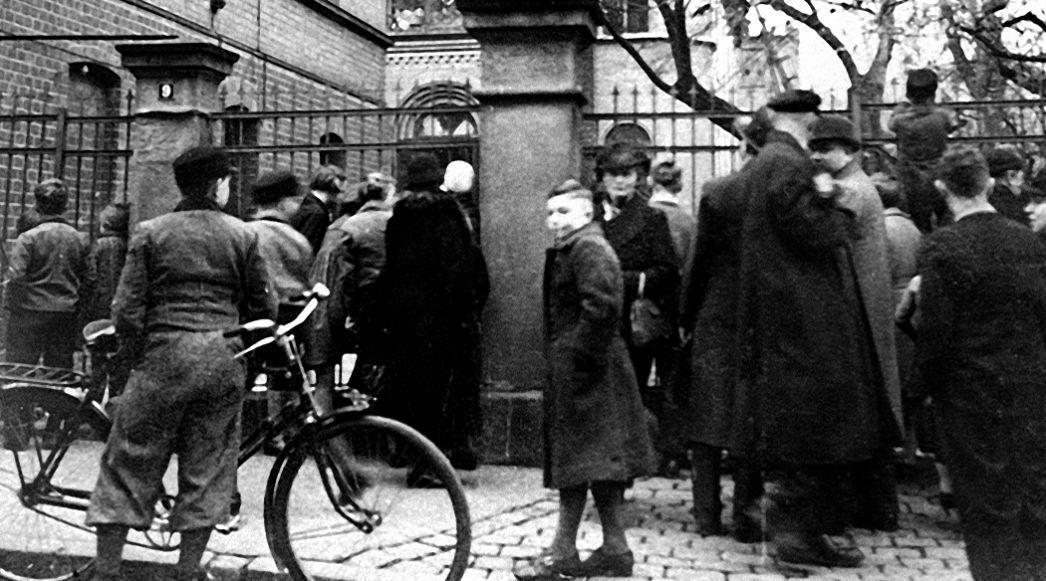
The Nordhausen synagogue on Pferdemarkt and the neighbouring community hall were the religious centre of Nordhausen's Jews. On the night of 9 to 10 November 1938, it was stormed and set on fire by an anti-Semitic mob. Many Nordhausen residents also took part in the pogrom.
The synagogue was consecrated on 12 September 1845. In 1933, the community of almost 500 members in Nordhausen was one of the largest in Thuringia after Gera and Erfurt. Jewish industrialists, lawyers, doctors, merchants and artists played a major role in the economic and cultural development of Nordhausen. From 1933 onwards, the Jews living in Nordhausen faced their gradual disenfranchisement. By banning Jewish civil servants, doctors and lawyers from their professions, boycotting businesses and forcing "aryanisations", the National Socialists gradually deprived the Jewish population of their livelihood.
The first highlight of the exclusion and persecution of Jews was the pogrom on 9/10 November 1938. During the night of the pogrom, the anti-Semitic mob marched through the streets of Nordhausen and destroyed Jewish businesses and homes. Shouting "Now we'll burn down the Jewish temple", they desecrated the synagogue and then set it on fire. The chief public prosecutor who was present explicitly instructed the Nordhausen fire brigade, which had arrived to fight the fire, not to concentrate their efforts on the synagogue but on the neighbouring buildings. On the morning of 10 November, the synagogue was completely burnt out. The ruins stood for another seven months before they were completely demolished by order of the city authorities.
Since 1988, a memorial stone on the corner of Pferdemarkt and Wolfstraße and an information board in the courtyard of the residential buildings there have commemorated the location of the synagogue and the fate of the Jews of Nordhausen. Two "Stolpersteine" ("stumbling stones") were laid near the former site of the synagogue. They commemorate the cantor of the Jewish community, Kurt Singer, and his father Eduard, who lived in the immediate neighbourhood of the synagogue. Both were forcibly driven out of their home during the pogrom night and deported to the Buchenwald concentration camp via the
